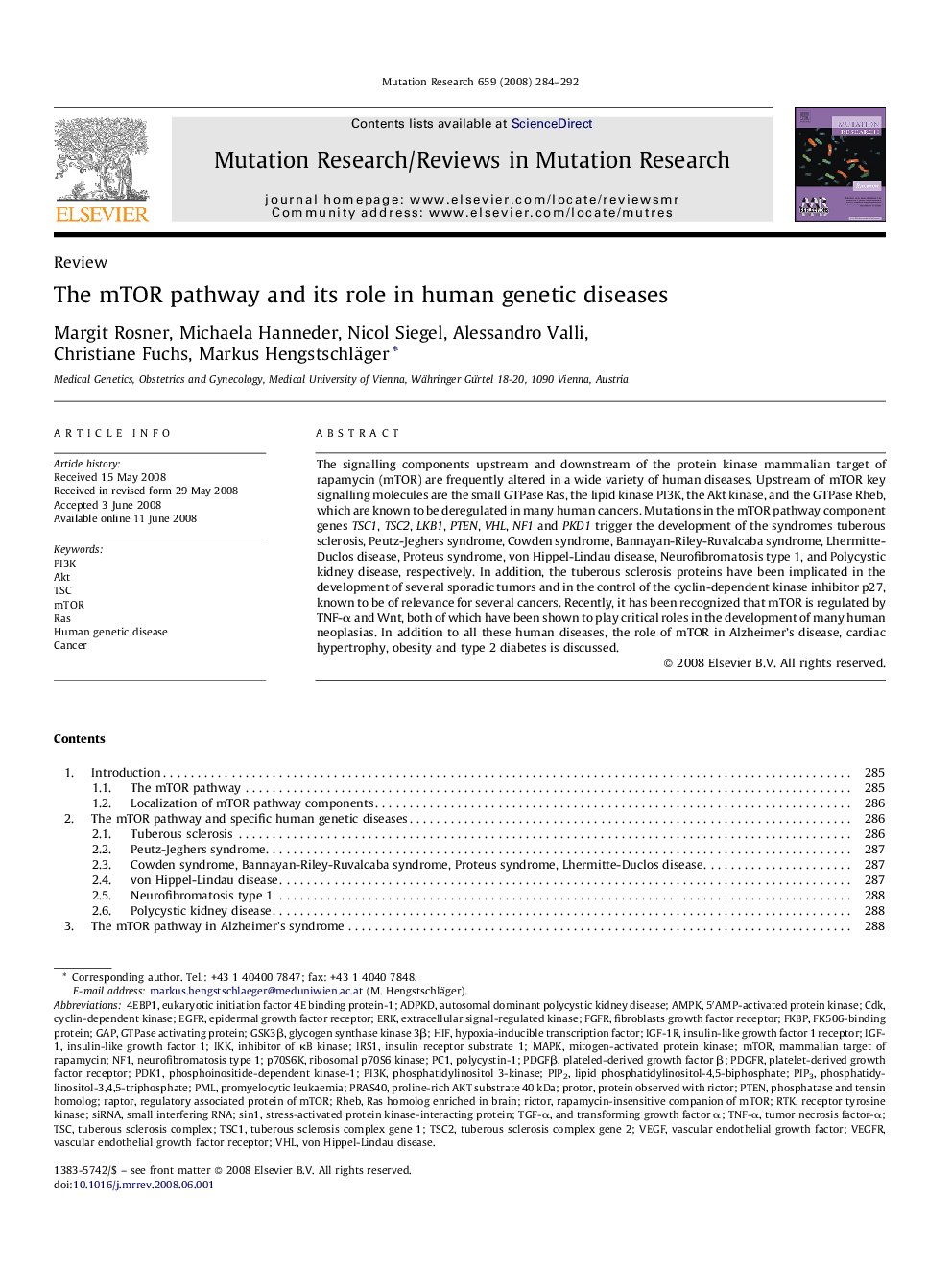| کد مقاله | کد نشریه | سال انتشار | مقاله انگلیسی | نسخه تمام متن |
|---|---|---|---|---|
| 2149740 | 1089879 | 2008 | 9 صفحه PDF | دانلود رایگان |

The signalling components upstream and downstream of the protein kinase mammalian target of rapamycin (mTOR) are frequently altered in a wide variety of human diseases. Upstream of mTOR key signalling molecules are the small GTPase Ras, the lipid kinase PI3K, the Akt kinase, and the GTPase Rheb, which are known to be deregulated in many human cancers. Mutations in the mTOR pathway component genes TSC1, TSC2, LKB1, PTEN, VHL, NF1 and PKD1 trigger the development of the syndromes tuberous sclerosis, Peutz-Jeghers syndrome, Cowden syndrome, Bannayan-Riley-Ruvalcaba syndrome, Lhermitte-Duclos disease, Proteus syndrome, von Hippel-Lindau disease, Neurofibromatosis type 1, and Polycystic kidney disease, respectively. In addition, the tuberous sclerosis proteins have been implicated in the development of several sporadic tumors and in the control of the cyclin-dependent kinase inhibitor p27, known to be of relevance for several cancers. Recently, it has been recognized that mTOR is regulated by TNF-α and Wnt, both of which have been shown to play critical roles in the development of many human neoplasias. In addition to all these human diseases, the role of mTOR in Alzheimer's disease, cardiac hypertrophy, obesity and type 2 diabetes is discussed.
Journal: Mutation Research/Reviews in Mutation Research - Volume 659, Issue 3, September–October 2008, Pages 284–292